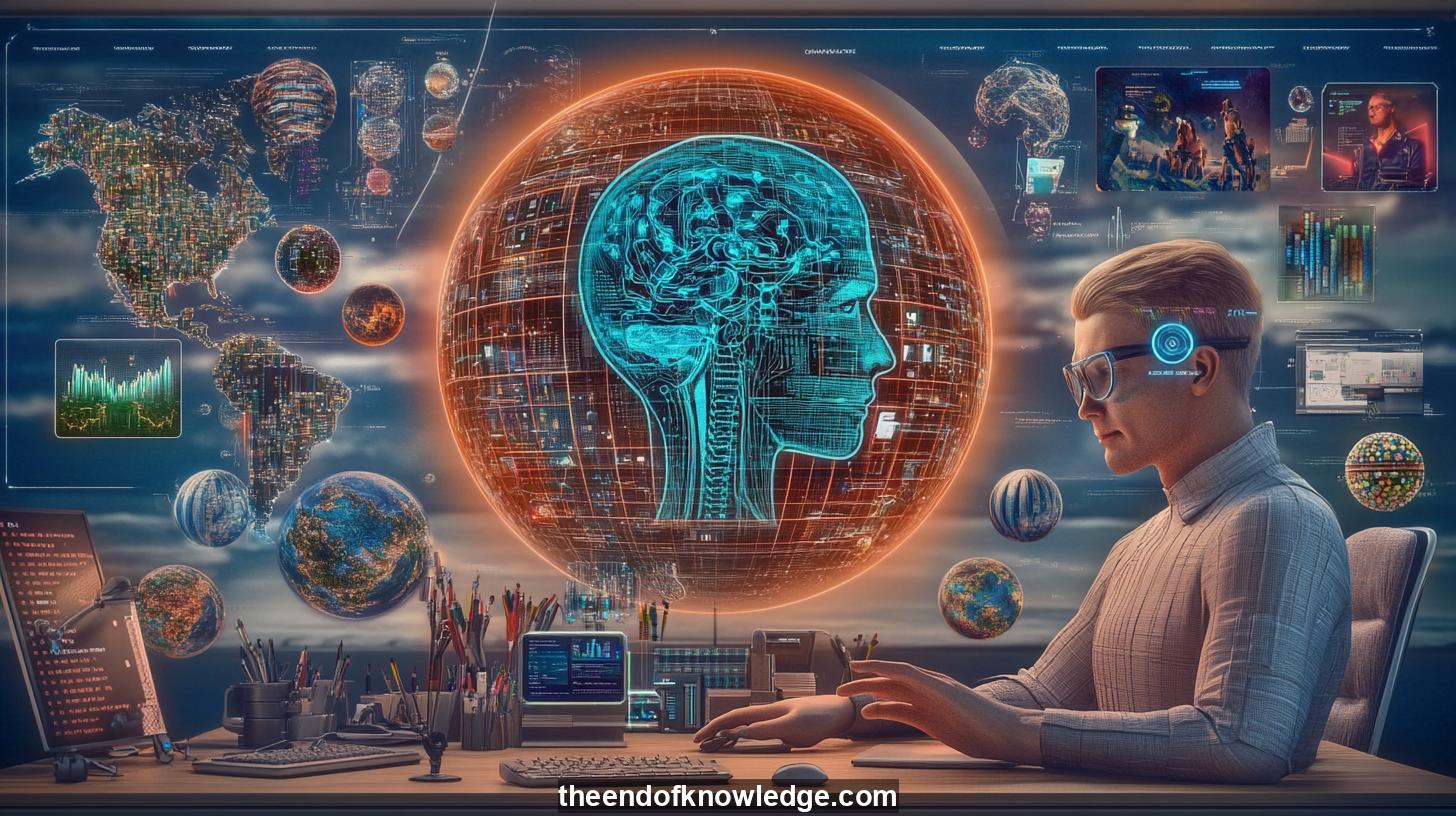🔴Persona : Human Resources in the era of artificial intelligence | Elisabet Bolarín Miró
Concept Graph, Resume & KeyIdeas using DeepSeek R1 :
graph LR
classDef AI_HR fill:#f9d4d4, font-weight:bold, font-size:14px;
classDef Ethics fill:#d4f9d4, font-weight:bold, font-size:14px;
classDef FutureWork fill:#d4d4f9, font-weight:bold, font-size:14px;
classDef Efficiency fill:#f9f9d4, font-weight:bold, font-size:14px;
classDef Diversity fill:#f9d4f9, font-weight:bold, font-size:14px;
classDef Governance fill:#d4f9f9, font-weight:bold, font-size:14px;
A[Vault7-223] --> B[AI-driven HR automation
enhances efficiency. 1]
A --> C[Tech adaptation ensures
competitiveness. 2]
A --> D[Ethical AI prioritizes
privacy, bias control. 3]
B --> E[Human oversight needed
for fairness. 4]
B --> F[Future work balances
tech-human skills. 5]
C --> G[Continuous learning
maintains relevance. 6]
D --> H[AI addresses diversity,
inclusion challenges. 7]
B --> I[Transparent policies required
for AI integration. 8]
F --> J[Employee well-being critical
in automation. 9]
B --> K[AI analytics boost
productivity, satisfaction. 10]
B --> L[HR evolves toward
strategic decisions. 11]
F --> M[Human-AI collaboration
defines future. 12]
D --> N[Ethical AI aligns with
human values. 13]
G --> O[Education adapts for
AI-driven economy. 14]
G --> P[Invest in upskilling to
counter displacement. 15]
G --> Q[AI enables personalized
employee learning. 16]
I --> R[Robust data governance
frameworks essential. 17]
H --> S[Inclusive AI reduces
hiring biases. 18]
K --> T[AI enhances engagement
via feedback. 19]
D --> U[Ethical AI builds
trust, accountability. 20]
B --> V[AI streamlines HR
administrative tasks. 21]
B --> W[Cultural shift needed
for AI adoption. 22]
K --> X[Real-time insights improve
HR decisions. 23]
R --> Y[Prioritize employee data
privacy. 24]
Q --> Z[AI identifies workforce
skill gaps. 25]
L --> AA[HR future: empathy
plus AI efficiency. 26]
B --> AB[AI aids global
talent management. 27]
D --> AC[Ethical AI embeds in
core values. 28]
H --> AD[AI reduces unconscious
promotion biases. 29]
D --> AE[Monitor AI systems for
ethical use. 30]
class A,B,E,F,I,K,L,V,W,X,AB AI_HR;
class D,H,N,S,U,AC,AD,AE Ethics;
class C,G,J,M,O,P,Q,Z FutureWork;
class E,K,T,X Efficiency;
class H,S,AD Diversity;
class I,R,Y Governance;
Resume:
discusses the impact of artificial intelligence (AI) on human resources and the future of work. It highlights how AI is transforming industries, with a focus on Spain and Europe. The author emphasizes the need for companies to adapt to these changes by integrating AI tools into their HR processes, such as recruitment, employee onboarding, and performance management. also touches on ethical considerations, including privacy concerns and the potential for discrimination in AI-driven decision-making. It suggests that while AI can enhance efficiency, it is crucial to maintain a human-centric approach to ensure fairness and transparency. The author calls for a balanced integration of AI and human resources to foster a more inclusive and productive work environment.
30 Key Ideas:
1.- AI is revolutionizing industries, particularly in HR, by automating tasks like recruitment and onboarding.
2.- Companies must adapt to technological changes to remain competitive.
3.- Ethical considerations, including privacy and bias, are crucial in AI implementation.
4.- AI tools can enhance efficiency but require human oversight to ensure fairness.
5.- The future of work demands a balance between technology and human skills.
6.- Continuous learning and reskilling are essential for employees to remain relevant.
7.- AI can help address diversity and inclusion challenges in the workplace.
8.- The integration of AI in HR requires transparent policies and regulations.
9.- Employee well-being and mental health are critical in an increasingly automated work environment.
10.- AI-driven analytics can provide insights to improve employee satisfaction and productivity.
11.- The role of HR is evolving to focus more on strategic decision-making with AI support.
12.- Collaboration between humans and AI will define the future of work.
13.- Ethical AI development must prioritize human values and societal impact.
14.- Education systems need to adapt to prepare workers for an AI-driven economy.
15.- Governments and organizations must invest in upskilling programs to address workforce displacement.
16.- AI can facilitate personalized learning and development opportunities for employees.
17.- The use of AI in HR requires robust data governance frameworks.
18.- Inclusive AI systems can help reduce biases in hiring and promotion processes.
19.- AI tools can enhance employee engagement through personalized feedback and recognition.
20.- The ethical use of AI in HR is essential to build trust and ensure accountability.
21.- AI can streamline administrative tasks, allowing HR to focus on strategic initiatives.
22.- The integration of AI in HR requires a cultural shift within organizations.
23.- AI can provide real-time insights to improve decision-making in HR.
24.- Employee data privacy must be a top priority when implementing AI tools.
25.- AI can help organizations identify and address skill gaps in the workforce.
26.- The future of HR will rely on a combination of human empathy and AI-driven efficiency.
27.- AI can facilitate global talent acquisition and management.
28.- Ethical AI practices must be embedded into the core values of organizations.
29.- AI can enhance diversity and inclusion efforts by reducing unconscious biases.
30.- Continuous monitoring and evaluation of AI systems are necessary to ensure ethical use.
Interviews by Plácido Doménech Espí & Guests - Knowledge Vault built byDavid Vivancos 2025
 >
>